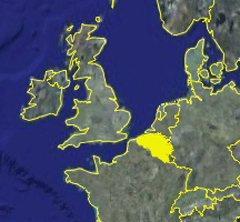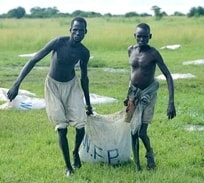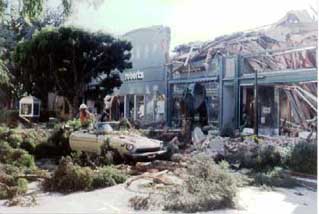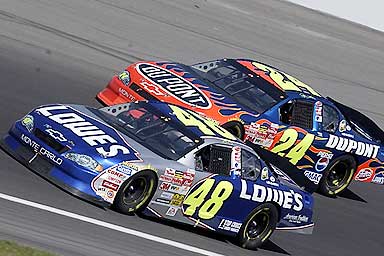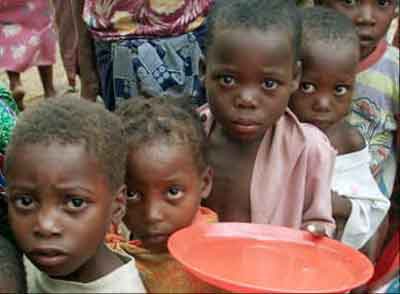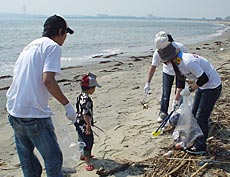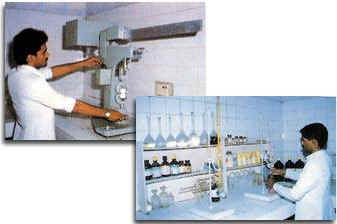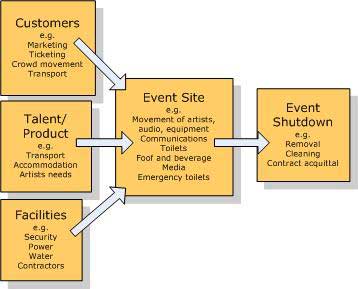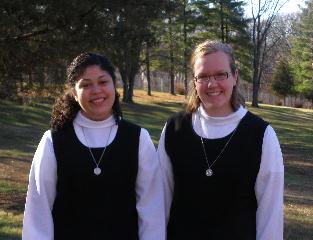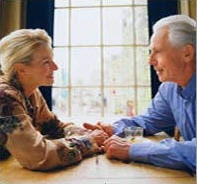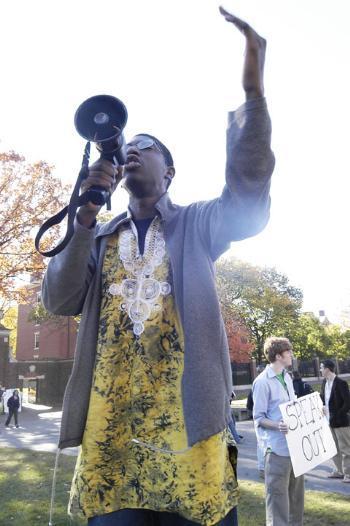پزشکان بدون مرز
Doctors Without Borders
In 1999, the Nobel Prize for Peace was won by the organization known as “Doctors Without Borders.” This is the English name of the organization, based in Belgium, which won the prize for its humanitarian assistance to people around the world, in areas that have been struck by disaster.
The fundamental ideas of Doctors Without Borders is that people who suffer from a disaster have the right to receive professional help as soon as possible. The organization helps people regardless of their nationality, race, religion, ethnicity, sex, or political opinions. Also, the assistance provided by Doctors Without Borders is given in response to all kinds of disasters, such as famines, earthquakes, and wars.
The people who belong to Doctors Without Borders are experienced medical workers who volunteer their time, effort, and skills in an attempt to help people who are in need. These volunteers include doctors, nurses, surgeons, anesthetists, laboratory technicians, and other medical workers. There are also some non-medical volunteers who work for Doctors Without Borders in positions of administration or logistics.
Volunteers must first take a course before participating in a humanitarian mission. They promise to abide by a code of professional ethics, and they promise to remain neutral in any conflicts within a disaster area. A mission typically lasts about six months, but the duration varies. The volunteers are insured by the organization, but they are not paid in any way for their work.
When Doctors Without Borders began in 1971, it consisted of only a few French doctors who wanted to provide humanitarian aid to people in disaster areas. Over the years, it grew rapidly, and by 2001, Doctors Without Borders had 2500 volunteers working in 80 countries around the world. They have helped people by providing emergency health care, vaccinations, medicine, water, and basic food, and also by developing improved water and sanitation systems. In many areas, Doctors Without Borders has also helped to provide basic medical training to local people.
Although Doctors Without Borders remains neutral in any conflicts within a disaster area, the organization does speak out against abuses of human rights. By remaining independent of the influence of governments and corporations, Doctors Without Borders is able to criticize the people and organizations who cause suffering. The volunteers are witnesses who tell the world about the cruelty that is inflicted upon innocent people.
Obviously, the work of Doctors Without Borders is extremely important. The volunteers of this organization are brave and selfless people whose efforts have relieved the suffering of millions of people.
Belgium
a country in northwest Europe between France and Germany. Population: 10,259,000 (2001). Capital: Brussels.
—
humanitarian
concerned with improving bad living conditions and preventing unfair treatment of people
humanitarian aid/assistance/relief
Humanitarian aid is being sent to the refugees.
humanitarian grounds/reasons/purposes
He was released from prison on humanitarian grounds.
—
strike
▶SOMETHING BAD HAPPENS◀
[intransitive and transitive] if something bad strikes, it suddenly happens or suddenly begins to affect someone
The plague struck again for the third time that century.
Everything seemed to be going fine when suddenly disaster struck .
—
disaster
a sudden event such as a flood, storm, or accident which causes great damage or suffering
ᅳsee also catastrophe
One hundred and twenty people died in China’s worst air disaster .
the economic consequences of the Chernobyl nuclear disaster
disaster for
The oil spill was a disaster for Alaskan sea animals.
The 1987 hurricane was the worst natural disaster to hit England for decades.
Their expedition nearly ended in disaster , when one of the climbers slid off the mountain.
The drought could spell disaster for wildlife.
Disaster struck when two men were killed during their parachute jumps. The peace process was on the brink of disaster .
Luckily the pilot saw the other plane just in time, and a disaster was narrowly averted .
natural disasters like earthquake and flood
their invasion of Iran was a great disaster
an atomic war would be the final disaster to the world
—
fundamental
relating to the most basic and important parts of something
We have to tackle the fundamental cause of the problem.
fundamental change/difference/distinction/shift etc
a fundamental difference in opinion
fundamental mistake/error
Novice programmers sometimes make fundamental errors.
the fundamental principles of liberty and equality
—
regardless
without being affected or influenced by something
regardless of
The law requires equal treatment for all, regardless of race, religion, or sex.
—
race
one of the main groups that humans can be divided into according to the colour of their skin and other physical features
ᅳsee also ethnic group
The school welcomes children of all races .
a person of mixed race
The law forbids discrimination on the grounds of race or religion.
ᅳsee also human race
—
ethnicity
—
famine
a situation in which a large number of people have little or no food for a long time and many people die
the great potato famine in Ireland severe/widespread famine Widespread famine had triggered a number of violent protests.A million people are facing famine
—
volunteer
to offer to do something without expecting any reward, often something that other people do not want to do
to offer (one’s services or help) without payment or reward; make a willing offer, esp. when others are unwilling:
He volunteered for guard duty.
Jenny volunteered to clear up afterwards.
I volunteered my services as a driver
—
volunteer (N)
a person who has volunteered or is willing to volunteer: This work costs us nothing; it’s all done by volunteers. | Can I have a volunteer to collect the glasses?
—
anesthetist
a doctor who gives an anesthetic to a patient
anesthetic
a substance that produces an inability to feel pain, either in a limited area (local anesthetic) or in the whole body, together with unconsciousness (general anesthetic):
The patient was under an anesthetic when the operation was performed.
—
laboratory
a special room or building in which a scientist does tests or prepares substances
a research laboratory
laboratory tests/experiments/studies
tests on laboratory animals
ᅳsee also language laboratory
—
administration
the management or direction of the affairs of a business, government, etc.:
the administration of the law | You will need some experience in administration before you can run the department.
—
logistics
the practical arrangements that are needed in order to make a plan that involves a lot of people and equipment successful
the day-to-day logistics involved with mining
logistics of
the logistics of travelling with small children
the logistics of supplying food to all the famine areas were very complex
—
mission
—
abide by something
phrasal verb
to accept and obey a decision, rule, agreement etc, even though you may not agree with it
You have to abide by the referee’s decision.
Another Source
1 to obey exactly or remain faithful to (laws, promises, etc.): If you join the club you must abide by its rules. | to abide by a treaty
2 to accept without complaint:You must abide by the consequences of your decision.
—
code
a collection of laws or rules:
the Napoleonic Code
the French civil code
Each state in the US has a different criminal and civil code.
The judge ruled that there had been no breach of the code .
There were plans to introduce a dress code (=rules about what to wear) for civil servants.
code of conduct/behaviour/ethics
the strict code of conduct that is so much a part of karate code of practice (=a set of rules that people in a particular business or profession agree to obey)
The Textile Services Association has drawn up a code of practice endorsed by the Office of Fair Trading.
—
ethic
ethics[plural]moral rules or principles of behaviour for deciding what is right and wrong
a report on the ethics of gene therapy
professional/business/medical ethics (=the moral rules relating to a particular profession)
public concern about medical ethics
Televised news is based on a code of ethics .
—
neutral
▶IN AN ARGUMENT ETC◀
not supporting any of the people or groups involved in an argument or disagreement
I always tried to remain neutral when they started arguing.
Clive decided to adopt a neutral position.
The British government acted as a neutral observer during the talks.
—
conflict
a state of disagreement or argument between opposing groups or opposing ideas or principles; opposition:
The two parties have been in conflict since the election.
The governor’s refusal to apply the law brought him into conflict with the federal government.
the conflict between religion and science
conflict over
conflicts over wage settlements
conflict between
the conflict between tradition and innovation
in conflict (with somebody)
normal kids who are in conflict with their parents
political/social/industrial conflict
social and political conflict in the 1930s
the threat of industrial conflict in the coalfields
Marx points out the potential conflicts below the surface of society.
His views on the literal truth of the Bible brought him into conflict with other Christian leaders.
Doctors exercise considerable power and often come into conflict with politicians.
a lawyer specializing in conflict resolution
—
mission
—
typically
usually
SalamZaban typically get around 100 emails a day.
—
insure
to buy insurance so that you will receive money if something bad happens to you, your family, your possessions etc
Have you insured the contents of your home?
insure (something/somebody) against loss/damage/theft/sickness etc
It is wise to insure your property against storm damage.
insure something for £1000/$2000 etc
You should insure the painting for at least £100,000.
—
consist of something phrasal verb
to be formed from two or more things or people
The buffet consisted of several different Indian dishes.
consist mainly/largely/primarily of somebody/something
The audience consisted mainly of teenagers.
consist entirely/solely of somebody/something
The area does not consist entirely of rich people, despite popular belief.
—
sanitation
the protection of public health by removing and treating waste, dirty water etc
Overcrowding and poor sanitation are common problems in prisons.
—
speak out phrasal verb
to publicly speak in protest about something, especially when protesting could be dangerous
speak out about/against
Five students who had spoken out against the regime were arrested.
Will no one speak out against the tyranny of this government?
they bravely spoke out against slavery
—
cruelty
behaviour or actions that deliberately cause pain to people or animals
ᅳopposite kindness
The children had suffered cruelty and neglect.
There was a hint of cruelty in Brian’s smile.
cruelty to
cruelty to animals
cruelty of
the cruelty of the slave trade
The deliberate cruelty of his words cut her like a knife.
the cruelties of war
they suffered torture and other cruelties
—
inflict
to force (something or someone unpleasant or unwanted) on someone:
The judge inflicted the severest possible penalty.
Don’t inflict your ridiculous ideas on me!
Mary has inflicted the children on her mother for the weekend.
we inflicted heavy casualties on the enemy
he enjoys inflicting pain on others
inflict something on/upon somebody
The strikes inflicted serious damage on the economy.
Detectives warned that the men could inflict serious injury.
—
selfless
caring only for others and not for oneself; completely unselfish: selfless devotion to duty
selfless devotion to their work
a selfless mother
a selfless act
relieve
to lessen (pain, anxiety, or trouble):
a drug that relieves headaches
Another Source
▶PAIN◀
to reduce someone’s pain or unpleasant feelings
ᅳsee also relief
Drugs helped to relieve the pain.
relieve tension/pressure/stress etc
Some people eat for comfort, to relieve their anxieties.
a pill that relieves pain
to relieve suffering
to relieve famine in Africa
we must relieve the hardships of the refugies

